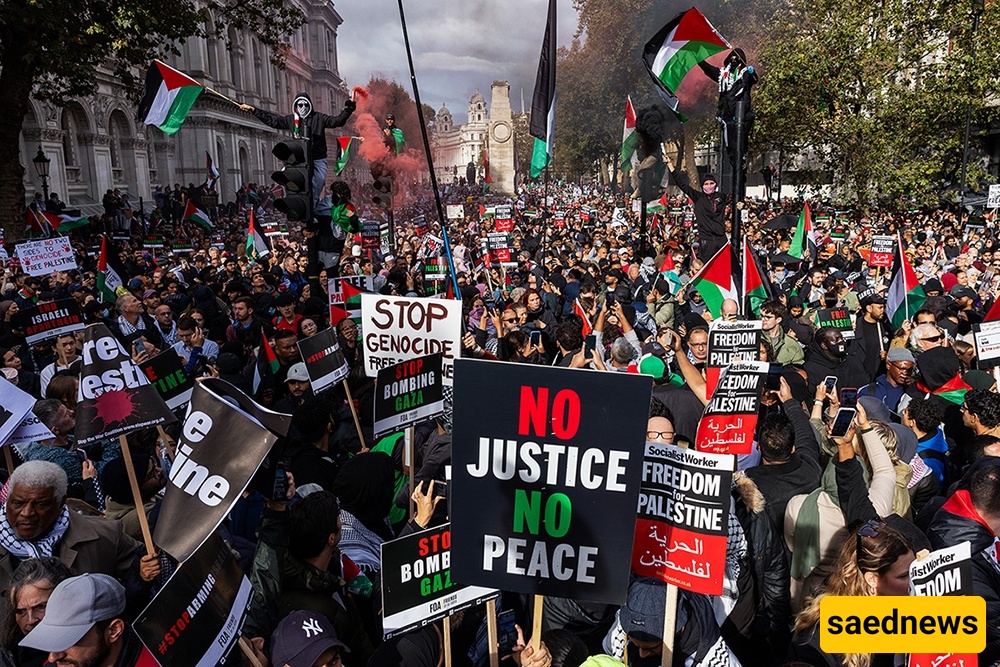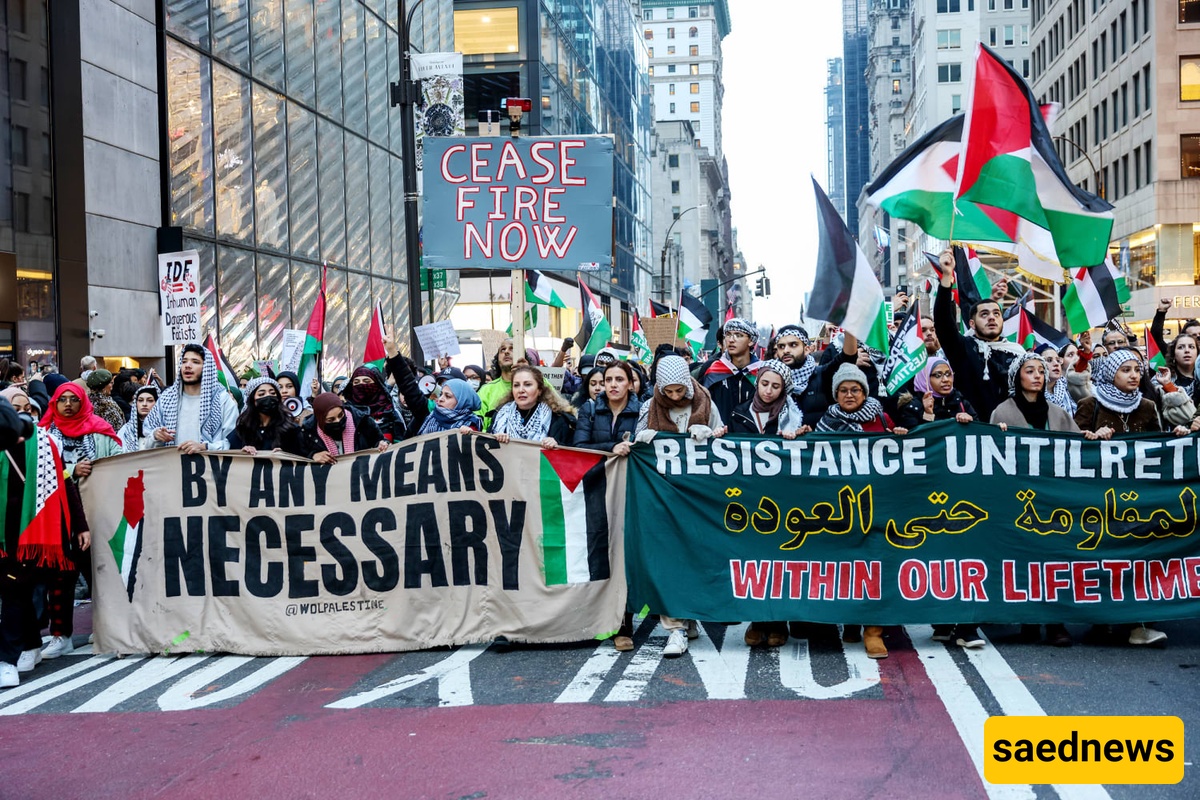SAEDNEWS: Amnesty International has announced that U.S. authorities are using artificial intelligence technology to monitor and track pro-Palestinian gatherings and protests. This action has raised concerns about privacy, freedom of speech, and the right to peaceful assembly in the United States.

According to Saed News, citing France 24, in recent months, concerns over U.S. authorities using advanced technologies to surveil citizens have increased. The latest reports from Amnesty International indicate that U.S. police and other security agencies are utilizing artificial intelligence and advanced algorithms to monitor pro-Palestinian gatherings and protests. This trend raises serious questions about privacy, freedom of expression, and the right to peaceful assembly in the United States, drawing the attention of researchers, civil society activists, and human rights defenders.

The use of artificial intelligence in monitoring civil gatherings, alongside its potential benefits for security, has always been controversial. AI algorithms are capable of processing very large volumes of data and can analyze behavioral patterns, online communications, and even body language of individuals at gatherings. However, the main concern is that such technologies can limit citizens’ fundamental rights without transparency and proper oversight, potentially becoming a tool for suppressing peaceful protests.
Amnesty International’s report indicates that U.S. security agencies are using data analytics tools and facial recognition systems to identify and monitor activists and protesters. These tools can analyze images and videos of gatherings and even identify individuals who have previously participated in similar protests. Additionally, information collected from social media and messaging platforms can also be used to predict patterns of gatherings and target individuals.
One of the direct consequences of this policy is the increase in self-censorship among protesters. Many social activists and pro-Palestinian supporters in the United States avoid attending public gatherings or even expressing their views on social media, fearing direct surveillance or facing legal consequences. This situation directly impacts freedom of speech and the right to peaceful assembly and can restrict the free flow of information and social criticism.
From a legal perspective, using artificial intelligence to monitor gatherings faces complex issues related to the U.S. Constitution and human rights. The U.S. Constitution guarantees freedom of speech and the right to peaceful assembly, but the advent of advanced technologies has challenged the scope of these rights. Legal experts warn that a lack of transparency in using surveillance technologies can lead to abuse and violations of fundamental rights.
Some analysts also believe that the use of AI in this context is not only a threat to citizens’ rights but can also undermine public trust in security institutions. When citizens feel that even attending a peaceful gathering could lead to identification and legal prosecution, civic participation decreases, and public trust in the government and security institutions is jeopardized.
At the international level, U.S. actions in this area have drawn the attention of human rights organizations. Amnesty International and other human rights groups have warned of the dangers of expanding surveillance technologies in restricting fundamental freedoms. These organizations emphasize that governments must balance security and individual rights in using new technologies and ensure that surveillance tools operate under transparency and legal oversight.
One important aspect of this issue is its social and cultural impact. Widespread monitoring of gatherings and online activities has led many citizens, especially youth and social activists, to spontaneously find alternative ways to express their views. Some groups use private networks and encrypted messaging apps to exchange information and organize activities without fear of being identified. This demonstrates civil society’s adaptability in responding to restrictions and security threats, but it also shows that the public space for peaceful protests is increasingly restricted.
From a technical perspective, AI in this field typically combines image analysis, facial recognition, social network analysis, and natural language processing. Facial recognition systems can identify individuals who attended past gatherings, social network analysis algorithms can monitor active and influential groups, and natural language processing tools can assess the content of messages and online posts for levels of “threat” or “extremism.” Combining these technologies with other data, such as GPS location or publicly registered information, allows for creating detailed profiles of civil activists.
However, critics argue that AI use in this context carries risks of errors and discrimination. Algorithms may unfairly target certain groups or mistakenly classify lawful behavior as a threat. Such errors can have serious consequences for individuals, including arrest, legal prosecution, or restrictions on civil and social activities.
The U.S. experience in monitoring pro-Palestinian gatherings is part of a broader trend many countries face: how to use new technologies in managing security and collecting information without violating citizens’ fundamental rights. This issue highlights the need for transparency, accountability, and legal oversight in the use of AI more than ever.
Ultimately, the use of AI to monitor pro-Palestinian gatherings in the United States is a clear example of the tension between security and individual freedoms in the digital age. It shows that even in advanced democracies, technology can become a tool for limiting fundamental freedoms and requires debate, legislation, and broad oversight.
Future human rights research and reports may clarify whether governments can balance national security and respect for citizens’ fundamental rights. The U.S. experience in this area can also warn other countries that unlimited use of surveillance technologies, even for security purposes, can have profound social, political, and ethical consequences.
In summary, Amnesty International’s report on the U.S. use of AI to monitor pro-Palestinian gatherings presents a sensitive and multifaceted issue to the international community. This issue not only challenges citizens’ civil rights and individual freedoms but also raises extensive questions about the future of digital surveillance, government accountability, and legal limitations in the era of advanced technologies.

